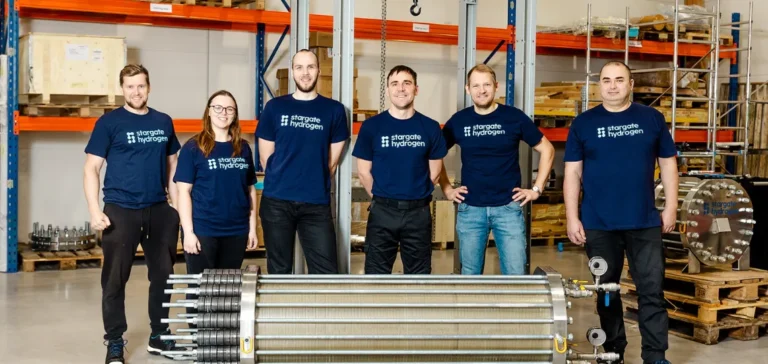Stargate Hydrogen opened a new electrolyser production facility in Tallinn, the capital of Estonia, on June 6. The event gathered political figures including Estonian Prime Minister Kristen Michal and sector representatives such as Hydrogen Europe Chief Executive Officer Jorgo Chatzimarkakis. The site is dedicated to the manufacture of alkaline electrolysis systems for hydrogen production.
Initial capacity and expansion potential
The factory’s first phase includes an annual production capacity of 140 megawatts, with the option to scale beyond 1 gigawatt through limited additional investments. Stargate Hydrogen has adopted an industrial strategy based on a pre-existing site and a modular layout of its production lines. This approach aims to limit initial fixed costs while enabling gradual ramp-up.
Chief Executive Officer Marko Virkebau stated that current production is fully booked through the end of 2025. Systems are already being shipped to established clients in Europe, the Middle East, Turkey and India.
European support and financial stability
The project holds the status of Important Project of Common European Interest (IPCEI), granting it access to European public funding. This support has attracted institutional investors and enabled an industrial rollout without resorting to oversized capacity.
According to Stargate Hydrogen executives, several comparable projects in Europe are currently underutilised. In response, the company has opted for modular growth, avoiding the large-scale investments associated with oversized factories.
Delivery rollout and new markets
Among the systems showcased during the inauguration was a unit ready for delivery to Fortum. The factory is also finalising the assembly of several electrolysis stacks. The Tallinn site primarily targets hydrogen-intensive industries such as steel, fertilisers and chemicals.
The company reports increasing demand in its established European markets and growing interest in new geographic regions, notably the Middle East and Asia. This trend reinforces the incremental development strategy implemented by the firm.






















